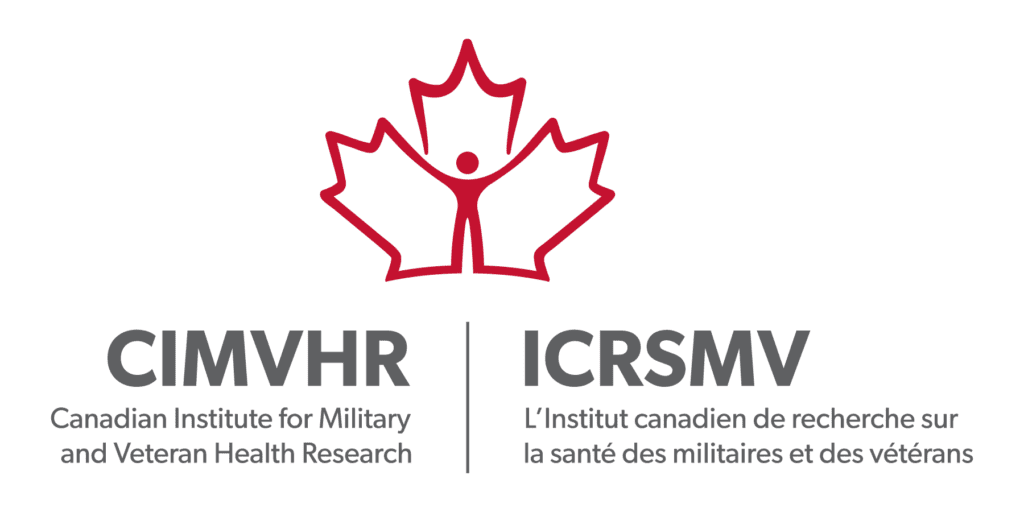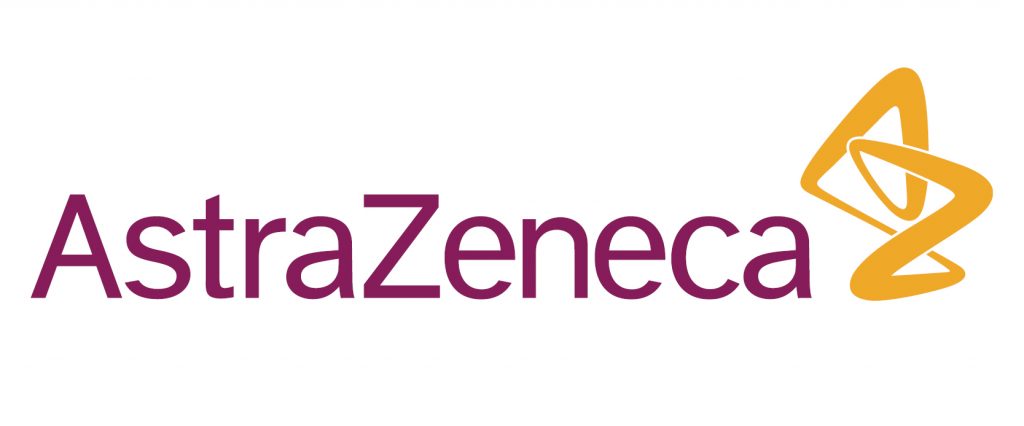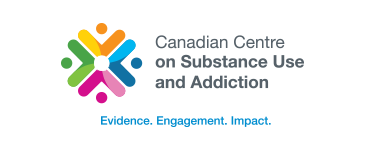Canadian Mental Health Researchers Stand Up to COVID-19

A RACE AGAINST THE CLOCK: Canadian Mental Health Researchers Stand Up to COVID-19
COVID-19 is having significant mental health implications for Canadians, many of whom suffer from fear, anxiety, job loss and social isolation as a result of the pandemic. These effects have been recognized from early on and a large number of studies have been launched.
In this first virtual reception, A Race Against the Clock: Canadian Mental Health Researchers Stand Up to COVID-19, experts in mental health research will explore 1) individual psychosocial, 2) population psychosocial and 3) the short- and long-term effects of COVID-19 on Canadians’ brain and mental health.
The only way we can improve the health and well-being of Canadians suffering with mental health problems as a result of COVID-19 is through evidence-based research and solutions.
Expert Panelists:
Theme 1: Individual Psychosocial Effects
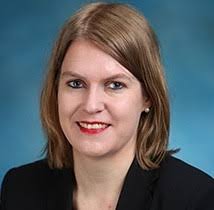 Sandra Meier, PhD
Sandra Meier, PhD
Associate Professor, Department of Psychiatry, Dalhousie University
Dr. Sandra Meier’s research focuses on leveraging modern technology to improve mental health care in youth. Using mobile-sensing apps that passively gather information on youths’ behaviors, she aims to identify youth whose symptoms might be worsening to provide them early on with the help they need. Building on this work, her COVID-19 related research is on developing apps that can interactively respond to mobile-sensed, pandemic-related maladaptive changes in people’s behaviour by sending them individualized health tips.
 Jehannine Austin, PhD
Jehannine Austin, PhD
Professor of Psychiatry, Medical Genetics, Canada Research Chair, University of British Columbia
Executive Director, BC Mental Health and Substance Use Services Research Institute
Dr. Jehannine Austin’s research is on modifying an existing, evidence based mental health intervention, called psychiatric genetic counseling (pGC) for people struggling with COVID-19 stress. Specifically, pGC has been shown to improve outcomes for people who live with psychiatric disorders and their families (e.g. substantial increases empowerment and self-efficacy, reported increases in engagement in self-management strategies to protect mental health, and reductions in psychiatric symptomatology).
 Joanna Henderson, PhD
Joanna Henderson, PhD
Director, Margaret and Wallace McCain Centre for Child, Youth & Family Mental Health
Implementation Director, Cundill Centre for Child and Youth Depression
Senior Scientist in the Child, Youth and Emerging Adult Program
Dr. Joanna Henderson is Director of the Margaret and Wallace McCain Centre for Child, Youth & Family Mental Health at the Centre for Addiction and Mental Health (CAMH) and Executive Director of Youth Wellness Hubs Ontario. She is also a Senior Scientist at CAMH and an Associate Professor in the Department of Psychiatry at the University of Toronto. Her work aims to improve access to high quality, integrated services for youth with substance use and/or mental health concerns and their families. She is examining mental health and substance use among youth through the COVID-19 pandemic. There was a marked increase in mental health symptoms early in the pandemic, with higher increases among certain vulnerable groups, such as youth with transgender and gender diverse identities or with physical health conditions. Mental health symptoms are declining over time among many youth. Using their findings, Dr. Henderson is working closely with her youth team to develop informational materials to support youth mental health during the pandemic.
 Chaya Kulkarni, BAA, M.Ed., Ed.D
Chaya Kulkarni, BAA, M.Ed., Ed.D
Director, Infant Mental Health Promotion (IMHP), Learning Institute
The Hospital for Sick Children
Dr. Chaya Kulkarni is the Director of IMHP, a national organization which improves outcomes across the lifespan through translating and promoting the science of early mental health into practice with families during pregnancy, infancy, and early childhood. Currently, in collaboration with the Ontario Centre of Excellence for Child and Youth Mental Health, Kids Brain Health Network and Children First, IMHP has launched a nation-wide caregiver survey on how our child and youth mental health system can improve the quality of services for children under six throughout the COVID-19 pandemic.
 David Nicholas, PhD
David Nicholas, PhD
Professor and Associate Dean, Research & Partnerships
Faculty of Social Work, University of Calgary
Dr. David Nicholas is a Professor in the Faculty of Social Work, University of Calgary. His research addresses quality of life, family support, and neurodevelopmental disabilities. He is the principal investigator of a CIHR-funded study examining the impact of the COVID-19 pandemic on children with health conditions and disabilities, including youth with mental health challenges. He has published on the impact of the 2003 SARS outbreak on pediatric care.
Lucyna M. Lach, MSW, PhD
Associate Dean (Student Affairs), Faculty of Arts
Associate Professor, School of Social Work, Faculty of Arts
Associate Member, Departments of Pediatrics, Neurology and Neurosurgery, Faculty of Medicine, McGill University
Dr. Lucyna Lach is an associate professor in the School of Social Work and an associate member of the Departments of Pediatrics, Neurology and Neurosurgery, Faculty of Medicine, McGill University. Her program of research focusses on the well-being of children with neurodisabilities and their caregivers (i.e. caregiver health, and parenting).
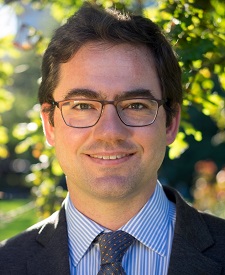 Rudolf Uher, MD, PhD
Rudolf Uher, MD, PhD
Psychiatrist and Researcher, Nova Scotia Health Authority
Professor, Canada Research Chair in Early Intervention in Psychiatry, Dalhousie University
Dr. Rudolf Uher is a psychiatrist and researcher who works with families living with mental illness. He leads the Families Overcoming Risks and Building Opportunities for Well-being (FORBOW; www.forbow.org) project, which aims to help children of affected parents develop resilience and avoid mental illness. Dr Uher’s team at Nova Scotia Health have tracked the impact of the pandemic on 500 children and their parents.
Theme 2: Population Psychosocial Effects
 Philippe Robaey, MD, PhD, FRCPC
Philippe Robaey, MD, PhD, FRCPC
Full Professor of Psychiatry, University of Ottawa and CHEO Research Institute
Dr. Philippe Robaey investigates the role of genetic and environmental factors in the development, expression and treatment of ADHD, in clinically referred children. The general objective of his research is to identify the genetic, neuropsychological, psychophysiological and early environmental factors predisposing to the development of inattention, impulsiveness and restlessness in children. Dr. Robaey is also studying the conditions for the successful implementation of ADHD services both in Canada and in China.
 Kim Corace, PhD, CPsych
Kim Corace, PhD, CPsych
Vice President, Innovation and Transformation, The Royal
Associate Professor in the Department of Psychiatry, University of Ottawa
Clinical Investigator with the Institute of Mental Health Research
President, Canadian Psychological Association (CPA)
Dr. Kim Corace’s research focuses on the mental health and substance use impacts of COVID-19 on: (1) people living with substance use (i.e., opioid use) and mental health problems and (2) frontline healthcare workers. In collaboration with clinicians, researchers and people with lived experience, her work evaluates the impact of changes in service delivery due to COVID-19, as well as novel models of care to address and respond to people’s substance use and mental health needs.
 Kathleen Sheehan, MD, DPhil, FRCPC
Kathleen Sheehan, MD, DPhil, FRCPC
Clinician-investigator, UHN Centre for Mental Health
Assistant Professor, University of Toronto Dept. of Psychiatry
Dr. Kathleen Sheehan is clinician-investigator with the medical and inpatient psychiatry programs at the Centre for Mental Health-University Health Network. Her research uses a variety of methodologies to explore health service delivery and quality of health care for individuals with co-occurring physical and mental illnesses, especially in the areas of stroke, delirium, and COVID-19.
Suze Berkhout, MD, PhD, FRCPC
Clinician-Investigator, University Health Network
Assistant Professor, University of Toronto Department of Psychiatry
Dr. Suze Berkhout is an early career clinician-investigator whose program of research utilizes ethnographic and narrative qualitative methods to explore social and cultural issues impacting access and navigation through health care systems. Her research focuses on how lived experience offers novel and important forms of knowledge in medicine, and in mental health especially. She carries out this work in diverse populations, including in treatment resistance in mental health, early psychosis, transplant medicine, and in relation to the COVID-19 pandemic.
 Anthony Levitt, MD, MBBS, FRCPC
Anthony Levitt, MD, MBBS, FRCPC
Chief, Brain Sciences Program, Sunnybrook Health Sciences Centre Scientist, Sunnybrook Research Institute
Professor, Department of Psychiatry, University of Toronto Medical Director, Family Navigation Project
Dr. Anthony Levitt has extensive expertise in psychiatric support for youth with mental health and/or addiction (MHA) concerns and their families as well as in conducting patient-informed research and developing patient-centered services. He is currently researching the MHA impacts of COVID-19 pandemic on the population of Ontario.
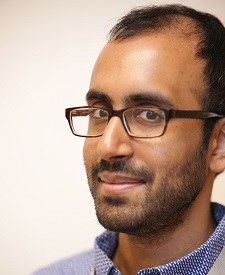 Soham Rej, MD Assistant Professor, McGill University Geriatric Psychiatrist and Junior Clinician-Scientist at the Jewish General Hospital/Lady Davis Institute
Soham Rej, MD Assistant Professor, McGill University Geriatric Psychiatrist and Junior Clinician-Scientist at the Jewish General Hospital/Lady Davis Institute
Dr. Soham Rej is a Geriatric Psychiatrist and Assistant Professor at the Jewish General Hospital (JGH), McGill University, Montreal, Canada. His team is currently running a Telehealth Intervention Program for isolated Older Adults (TIP-OA). The program provides weekly friendly phone calls from trained volunteers during and post-COVID: https://www.telehealthmontreal.ca/index.html. Dr. Rej’s JGH Geri-PARTy team also conducts clinical trials of behavioral interventions (e.g. mindfulness, meditation, tai chi, yoga, exercise, health education, virtual reality) in late-life mood, anxiety, and cognitive disorders.
 Catherine Lebel, PhD
Catherine Lebel, PhD
Associate Professor, Radiology, University of Calgary
Adjunct Professor, Werklund School of Education, University of Calgary
Hotchkiss Brain Institute and Alberta Children’s Hospital Research Institute
Gerald Giesbrecht, PhD, R. Psych
Associate Professor, Pediatrics and Community Health Sciences, University of Calgary
Alberta Children’s Hospital Research Institute
Lianne Tomfohr-Madsen, PhD, R. Psych
Associate Professor, Psychology and Pediatrics, University of Calgary
Alberta Children’s Hospital Research Institute
Drs. Lebel, Giesbrecht, and Tomfohr-Madsen are researchers at the University of Calgary focused on maternal stress and mental health and child development. They co-lead the Pregnancy during the COVID-19 Pandemic study, which is characterizing how the COVID-19 pandemic has affected the mental and physical health of pregnant individuals, and how it will ultimately affect the health and well-being of their babies.
 David Pedlar, PhD
David Pedlar, PhD
Scientific Director Canadian Institute for Military and Veteran Health Research
Dr. David Pedlar is the Scientific Director of the Canadian Institute of Military and Veteran Health Research and professor in the School of Rehabilitation Therapy at Queens University. He has dedicated his career to advancing the care and well being of Canadian Armed Forces (CAF) Veterans.
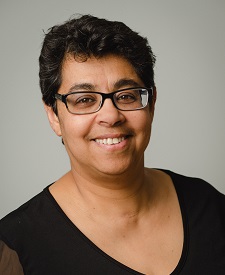 Imaan Bayoumi, MD
Imaan Bayoumi, MD
Assistant Professor, Family Medicine
Queen’s University
Dr. Imaan Baoumi is an Assistant Professor in Family Medicine at Queen’s University, cross-appointed to the Department of Public Health Sciences, and is an Institute for Clinical Evaluative Sciences (ICES) Fellow. Dr. Bayoumi is using quantitative surveys, narrative data collection, and in-depth individual interviews, to understand the impact of pandemic public health measures on Canadians and their access and experience of health services.
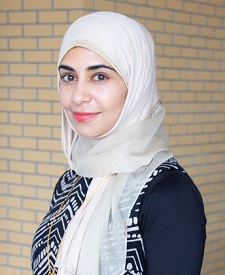 Aaida Mamuji, PhD
Aaida Mamuji, PhD
Associate Professor & Coordinator, Disaster and Emergency Management (DEM), School of Administrative Studies, Faculty of Liberal Arts & Professional Studies
York University
Dr. Aaida A. Mamuji is an Associate Professor of Disaster and Emergency Management at York University. Her areas of interest are social vulnerability and capability in the disaster context, hosting and resettlement, international responses to natural disasters, and risk assessment. Dr. Mamuji was awarded a major COVID-19 research grant as principal investigator from the Canadian Institutes of Health Research (CIHR) Rapid Research Program. Dr. Mamuji will be sharing initial findings from this research entitled “Destigmatizing Chinese Communities in the face of COVID-19: Emergency Management Actions to Address Social Vulnerability”.
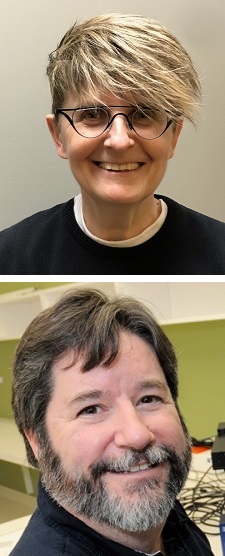 Brenda Elias, PhD
Brenda Elias, PhD
Professor, Department of Community Health Sciences, Max Rady College of Medicine, Rady. Faculty of Health Sciences
University of Manitoba
Dr. Brenda Elias is internationally regarded for her research that bridges Indigenous, gender health, social determinants, social epigenetics, mental health, neurodevelopmental conditions, cancer, and health info-structures. She is a member of the International Group for Indigenous Health Measurement and Canada’s Immunity Task Force, Indigenous Advisory Circle. She is a research lead of a social epigenetic biobank of FASD, a dignity promotion project on FASD stigma, and a national Indigenous COVID-19 seroprevalence study.
Geoffrey Hicks, PhD
Director, Regenerative Medicine, Professor of Biochemistry & Medical Genetics, Rady Faculty of Health Sciences
Senior Investigator of the Research Institute of Oncology and Hematology, CancerCare Manitoba
Principal Investigator of Children’s Hospital Research Institute of Manitoba
Dr. Geoff Hicks is recognized internationally for his expertise in the genetic modeling of human disease and functional genomics to understand genetic determinants of cancer, ALS and Fetal Alcohol Spectrum Disorder. Hicks is an investigator of the Kid’s Brain Health Network. His team has developed new modela of FASD that identify Vitamin A as a potential preventative treatment, and Epi/Genetic biomarker signatures that can be used for early diagnosis and intervention in children with FASD
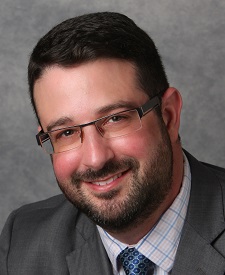 Michael J. A. Wohl, PhD
Michael J. A. Wohl, PhD
Graduate Chair, Carleton University
Professor, Psychology, Carleton University
Dr. Michael Wohl is the director of two laboratories. In the Carleton University Gambling Laboratory members examine factors that predict disordered gambling, positive play (e.g., monetary limit setting and adherence), and behaviour change. In the Conflict Resolution Laboratory members focus on the emotions that stem from group-based victimization (angst) and their effects on intergroup relations as well as emotions that lead to intergroup harm doing (e.g., hate) and facilitate reconciliation efforts (e.g., guilt). In this presentation, Dr. Wohl will discuss addiction substitution among gamblers following COVID-19 precipitated casino closures.
 Cécile Rousseau, MD
Cécile Rousseau, MD
Clinical Psychiatrist, Montreal Children’s Hospital
Professor, Department of Psychiatry, McGill University
Investigator, McGill University Health Research Centre
Dr. Cécile Rousseau is a research and clinical psychiatrist at the Montreal Children’s Hospital. In June 2020, Dr. Rousseau’s study (n=3273) documented the prevalence of COVID related discrimination in Quebec and its impact on mental health. Results confirmed the over-exposure of ethno-cultural groups to COVID-19 and to COVID related discrimination. COVID-related discrimination was associated with higher mental health distress and black participants reported worse mental health outcomes. Multi-sectoral community-based anti-discrimination programs are urgently warranted to buffer the mental health consequences of the pandemic.
Theme 3: Short and Long-Term Effects of the Pandemic on Brain and Mental Health
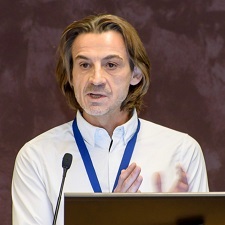 Michael Piccinini Vallis, PhD, R. Psych
Michael Piccinini Vallis, PhD, R. Psych
Associate Professor, Family Medicine, Dalhousie University
Dr. Michael Vallis, a Halifax based registered health psychologist is a Health Behaviour Change Consultant and Associate Professor, Family Medicine, Dalhousie University. His areas of expertise are obesity, diabetes, cardiovascular risk and gastroenterology. He spends most of his time training healthcare providers in behaviour change for chronic disease management. Since COVID-19, he has been supporting medical providers in managing the additional stresses of living with chronic diseases during the pandemic.
 Robert Bartha, PhD
Robert Bartha, PhD
Acting Director, Robarts Research Institute Professor, Medical Biophysics, Schulich School of Medicine and Dentistry, Western University
Dr. Robert Bartha is Acting Director of Robarts Research Institute and Professor of Medical Biophysics in the Schulich School of Medicine and Dentistry at Western University. His research is focused on the development of advanced magnetic resonance imaging methods for the early diagnosis and monitoring of treatment response in neurological disorders. Recently, Dr. Bartha has led an interdisciplinary team of basic scientists and clinicians from across London to examine the long-term neurological consequences of COVID-19 illness using advanced MRI and cognitive testing in people who have recovered from the respiratory symptoms of the disease.
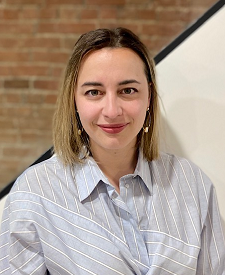 Catherine Legault, MD
Catherine Legault, MD
Assistant Professor, Department of Neurology and Neurosurgery, McGill University
Clinical Neurologist, McGill University Health Centre
Dr. Catherine Legault is an early career Assistant Professor at McGill University in the Department of Neurology and Neurosurgery and a clinical neurologist caring for patients with stroke at McGill University Health Centre. Dr. Legault was at the forefront of the COVID-19 epidemic. She will relate her experience as well as the experience of the neurology group caring for patients with COVID-19 suffering from neurological complications.
 Mary Pat McAndrews, PhD
Mary Pat McAndrews, PhD
Senior Scientist and Division Head – Clinical and Computational Neuroscience, Krembil Research Institute (Krembil)
Professor, Dept. of Psychology, University of Toronto
Discipline Head – Psychology, University Health Network
Director, Neuropsychology Clinic, Krembil Brain Institute, UHN
Dr. Mary Pat McAndrews research focuses on memory and language, using functional neuroimaging, studies of patients with medial temporal lobe dysfunction, and brain stimulation techniques to understand how brain networks are organized and modified by focal damage or therapies. Dr. McAndrews collaborates on research on long-term cognitive dysfunction following systemic illnesses and depression that aims to merge clinical and computational approaches to better understand the relationship between cognition, brain networks, and clinical features of disorders and therapeutic outcome.
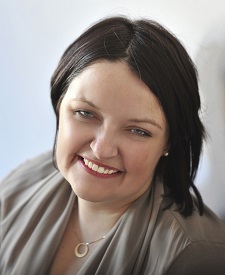 Margaret McKinnon, PhD, CPsych
Margaret McKinnon, PhD, CPsych
Homewood Chair in Mental Health and Trauma Associate
Professor and Associate Chair, Research Department of Psychiatry and Behavioural Neuroscience, McMaster University
Dr. Margaret McKinnon is the Homewood Chair in Mental Health and Trauma in the Department of Psychiatry and Behavioural Neurosciences at McMaster University. Her work focuses on better characterizing PTSD and on the translation of this knowledge to development of novel treatment interventions aimed at reducing the tremendous burden of this illness. Dr. McKinnon has a special interest in military, veteran and first responder populations, and has worked with these groups clinically and through research.
 Lakshmi Yatham, MBBM, DPM, FRCPC, MBA (Exec)
Lakshmi Yatham, MBBM, DPM, FRCPC, MBA (Exec)
Professor and Head, Department of Psychiatry Director, Institute of Mental Health, UBC
Regional Head and Regional Program Medical Director, Vancouver Coastal Health and Providence Healthcare
Dr. Lakshmi Yatham is Professor and Head of the UBC Department of Psychiatry, Director of the UBC Institute of Mental Health, and Regional Head of Psychiatry for Vancouver Coastal and Providence Health Care Authorities. He is also Editor-in-Chief for the Canadian Journal of Psychiatry, and President of the World Federation of Societies of Biological Psychiatry. Dr. Yatham is a world-class clinician-scientist in mood disorders who has made fundamental advancements to the understanding of the neurobiology and treatment of bipolar disorder. Dr. Yatham is currently involved in studies examining the impact of knowing someone with Covid19 on anxiety and depression in university students, and Covid19 related social rhythm disturbances on mood disorders.
Special Guests
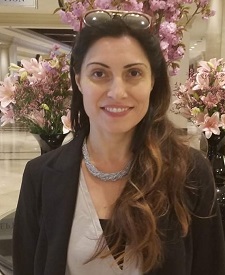 Dr. G. Camelia Adams MD, MSc, FRCPC
Dr. G. Camelia Adams MD, MSc, FRCPC
Associate Professor, Department of Psychiatry, University of Saskatchewan
Dr. Camelia Adams is a psychiatrist with an outpatient clinical practice focused on mood and anxiety disorders. She offers and teaches Interpersonal Group Therapy and Cognitive Behavioural Therapy. She has established the Attachment Research Lab, exploring the impact of adult attachment on the clinical presentation, treatment engagement and recovery of individuals with mental illness. She is the principal investigator of a study exploring the mental health impact of the COVID-19 pandemic on physicians from different specialties
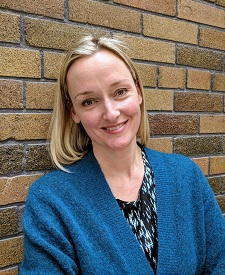 Jennifer Bethell, BSc, MSc, PhD
Jennifer Bethell, BSc, MSc, PhD
Affiliate Scientist, KITE (Toronto Rehability Institute – University Health Network)
Assistant Professor (Status-only), Institute of Health Policy, Management and Evaluation, University of Toronto
Adjunct Scientist, ICES
Dr. Jennifer Bethell is an epidemiologist and health services researcher interested in studying topics related to mental health, injuries and prescription medication use across the life course. She is currently funded by a CIHR COVID-19 in Mental Health grant to work with knowledge users to synthesize and mobilize research on the mental health impacts of social connection for residents of long-term care homes as well as strategies to enable social connection in this population during COVID-19.
 Scotty Butcher, MSc, PhD, BScPT, ACSM-RCEP, CF-L1, CMMT
Scotty Butcher, MSc, PhD, BScPT, ACSM-RCEP, CF-L1, CMMT
Associate Professor, School of Rehabilitation Science, University of Saskatchewan
Dr. Scotty Butcher is a physical therapy researcher with a 25 year lived experience with anxiety. He has begun research into the physical and mental health aspects of post-COVID-19 rehab and of pandemic-related remote learning in University Students. He is a Mindfulness and Meditation Teacher and incorporates mindfulness into his personal and professional life.
 Sophia Frangou, PhD
Sophia Frangou, PhD
UBC President’s Excellence Research Chair in Brain Health
Director, Translational Neuroimaging and Clinical Neuroscience Program in Mental Health
Professor, Department of Psychiatry, Faculty of Medicine, UBC
Dr. Sophia Frangou’s personal research interest is in using neuroimaging to define aspects of brain organization and their relationship to psychopathology across the lifespan. As Vice-Head for research at the Department of Psychiatry at UBC, she leads strategic meetings on COVID-19 response.
Sponsored By
 Innovative Medicines Canada is the national voice of Canada’s innovative pharmaceutical industry. We advocate for policies that enable the discovery, development and commercialization of innovative medicines and vaccines that improve the lives of all Canadians. We support our members’ commitment to being valued partners in the Canadian healthcare system.
Innovative Medicines Canada is the national voice of Canada’s innovative pharmaceutical industry. We advocate for policies that enable the discovery, development and commercialization of innovative medicines and vaccines that improve the lives of all Canadians. We support our members’ commitment to being valued partners in the Canadian healthcare system.
 The Kids Brain Health Network (KBHN) is a national Network of Centres of Excellence comprised of highly qualified researchers, health professionals, trainees, government agencies, private sector and not-for-profit organizations, and family partners dedicated to improving outcomes for children impacted by neurodevelopmental disabilities. Since 2010, KBHN has worked to develop and implement innovative solutions and services that focus on early identification, evidence-based interventions and family support, with an overarching goal of delivering socio-economic benefit to Canada.
The Kids Brain Health Network (KBHN) is a national Network of Centres of Excellence comprised of highly qualified researchers, health professionals, trainees, government agencies, private sector and not-for-profit organizations, and family partners dedicated to improving outcomes for children impacted by neurodevelopmental disabilities. Since 2010, KBHN has worked to develop and implement innovative solutions and services that focus on early identification, evidence-based interventions and family support, with an overarching goal of delivering socio-economic benefit to Canada.

